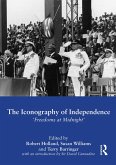This book employs a history of ideas approach to trace the complex journey of the Revolutionary Communist Party (RCP) and its afterlives. Although the RCP existed for barely two decades, it left a curiously lasting impact on British politics, and its legacies have provoked bewilderment, suspicion, and animosity.
Formed as the Revolutionary Communist Tendency in 1978, the RCP represented a distinct and often controversial offshoot of the Trotskyist left. Campaigning principally around 'unconditional support for Irish freedom' and anti-racism, RCP cadres expounded an independent revolutionary politics to supersede capitalism. In the 1990s, however, the RCP leadership ruefully declared that the working class had suffered an historic defeat, and the party dissolved in 1996.
Combining wide-ranging archival research and twenty-four life-history interviews with former activists, Preparing for Power examines ideological continuity and change among the ex-RCP milieu. Explaining the party's key ideas, their evolution, and their retrospective contestation, Jack Hepworth analyses the RCP's trajectory in a broader political context. In doing so, Hepworth illuminates a network which has been the subject of considerable media sensation and polemical attention.
Formed as the Revolutionary Communist Tendency in 1978, the RCP represented a distinct and often controversial offshoot of the Trotskyist left. Campaigning principally around 'unconditional support for Irish freedom' and anti-racism, RCP cadres expounded an independent revolutionary politics to supersede capitalism. In the 1990s, however, the RCP leadership ruefully declared that the working class had suffered an historic defeat, and the party dissolved in 1996.
Combining wide-ranging archival research and twenty-four life-history interviews with former activists, Preparing for Power examines ideological continuity and change among the ex-RCP milieu. Explaining the party's key ideas, their evolution, and their retrospective contestation, Jack Hepworth analyses the RCP's trajectory in a broader political context. In doing so, Hepworth illuminates a network which has been the subject of considerable media sensation and polemical attention.









